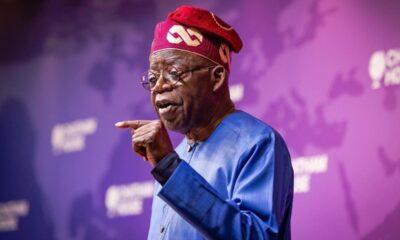- Osinbajo Defends Nigeria’s $73bn Debts
Vice-President Yemi Osinbajo on Tuesday defended Nigeria’s $73bn debts despite admitting that the debt profile grew by another $10bn between 2015 and this year.
In 2015, the VP said the debt size was $63bn, growing by $10bn to hit $73bn in 2018.
However, Osinbajo, who spoke during a town hall meeting with Nigerians in Abuja, defended the debt profile, arguing that the country was still within the safe region, especially when compared with other countries.
He said people had misconceptions when they argued that the present administration of President Muhammadu Buhari was piling up more debts than its predecessors.
Osinbajo dismissed those who expressed such fears and gave an analysis on why he believed debts were not the country’s major problems.
Osinbajo argued that the country’s debts rose the “sharpest” between 2010 and 2014 when oil prices were also quite high.
He explained, “I want to give you the facts and figures on the debt issue. The dollar-denominated debts of Nigeria –that is the debts of the Federal Government, the states and local governments.
“In 2010, Nigeria’s debt was $35bn; 2011, it was $41bn; in 2012, it was $48bn; in 2013, it became $64bn; 2014, it rose to $67bn; 2015, it fell to $63bn; 2016, $57bn; 2017, $70bn; 2018, it is $73bn.
“So, the difference between 2015 and now is $10bn.
“One of the things that I always want you to bear in mind is that when oil prices were at their highest, between 2010 and 2014, that was when we had the sharpest rise in debts.”
The VP further argued that before people reached the conclusion that Nigeria was piling up much debts, they must also check the debt to Gross Domestic Product rate.
He stated, “Our debt to GDP is one of the lowest among the countries that are frequently compared to us. Our debt to GDP is 20 per cent. When you compare it to other countries, you will see that Ghana is about 68 per cent, whereas Ethiopia’s is 48 per cent. In terms of the size of our economy and debt, we are doing okay.”
But, he also informed his audience that the country had a challenge with revenue collection, which did not match its debt profile.
Osinbajo added, “We are not collecting enough revenue compared to what we want to spend.
“Are we collecting enough taxes? If you look at the Federal Inland Revenue Service Figures, it say 914 Nigerians pay the self-assessed tax of more than N10m. Of the 914, 912 live in Lagos and the other two live in Ogun State.
“No other Nigerian outside of Lagos and Ogun pay the self-assessed tax of more than N10m. So, we are simply not collecting enough revenue.”
To address the revenue collection gap, he said the Federal Government and the states were already discussing harmonising tax collections.
Osinbajo also spoke on the government’s N-Power Programme, saying that it would target additional one million beneficiaries in the next phase.
“At the moment, we have taken up to 500,000 and in the next phase, we are looking at another 200,000 and closely followed by another 300,000.
“In all, we will be employing up to a million, and that will be the largest post-tertiary job programme in the entire Africa.
“The reason why we have done this is that of the employment problems that we have, we may not be able to engage everybody but at least the government must give some direct provision of jobs.”
Commenting on the current strike by the Academic Staff Union of Universities, the VP said much as the government would continue to engage the union in discussions, it did not support the idea of spending over 70 per cent of the country’s annual budget on the payment of salaries.
“We are dealing with a population of about 200 million people who depend on a budget of about N8.6 trillion (2017) and of that amount, 70 per cent of it goes to salaries and overheads, and it goes to less than two million people.
“It is impossible to answer to all of the monetary needs of people by the size of the federal budget”, the VP said.

 Forex1 week ago
Forex1 week ago
 Naira4 weeks ago
Naira4 weeks ago


 Naira1 week ago
Naira1 week ago
 Company News4 weeks ago
Company News4 weeks ago


 Naira1 week ago
Naira1 week ago




 Naira3 weeks ago
Naira3 weeks ago
 Billionaire Watch6 days ago
Billionaire Watch6 days ago
 Banking Sector3 weeks ago
Banking Sector3 weeks ago





















